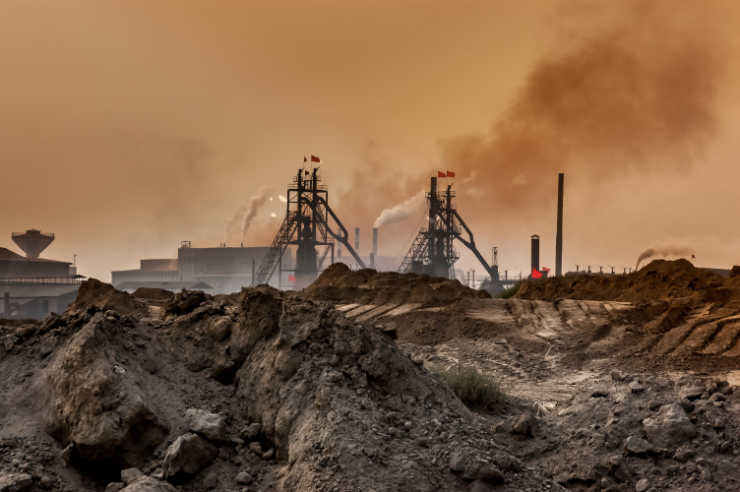Many of the minerals necessary to build modern technologies are produced in China, and Western leaders are concerned about the national security ramifications of such deep consolidation of vital resources. In Foreign Policy, Christina Lu discusses the efforts of the United States and its allies to reduce reliance on Chinese rare earth metals production. Lu writes:
U.S. lawmakers are scrambling to weaken China’s grip on the critical mineral supply chains that are key to the global energy transition, as escalating tensions stoke fears of strategic vulnerabilities and potential geopolitical disruptions.
While decades of investments have allowed Beijing to dominate the processing and refining of key critical minerals, worsening U.S.-China relations have sparked a new push to redraw the map. Desperate to disentangle from China, Washington has been joining forces with allies to secure new supplies, part of a broader realignment as countries increasingly forge new trade ties alongside geopolitical lines, rather than the bottom line.
“The globalization 1.0 of the last 50 years was about finding economic value through distributed production and sourcing at best cost from overseas,” said Kevin Book, the managing director of ClearView Energy Partners, a consultancy. “The 2.0 version is about values-driven economics, and that is a very big change, one that we cannot underscore enough—but it’s also a change that’s slow to happen.”
This shift is apparent in the rush for critical minerals, which are essential to the lithium-ion batteries that power electric vehicles (EVs) and other green technology. Global demand is primed to explode: By 2050, clean energy technology could require billions of tons of these minerals as inputs, according to the World Bank. Other critical minerals include cobalt, used in jet engines, and the rare earth elements that are used in everything from wind turbines to missile guidance systems. China overwhelmingly commands these minerals’ processing and refining markets and controls some 77 percent of the world’s EV battery manufacturing capacity.
To reduce its reliance on Beijing in the coming decades, Washington is focusing on aligning with allies, including through the Mineral Security Partnership (MSP), an initiative that is designed to bolster supply chain security with Australia, Canada, the United Kingdom, France, Germany, Japan, South Korea, and other members. Outside of the MSP, the Biden administration is also pursuing new trade deals and is reportedly in discussions with the European Union for a new critical minerals club.
“This is a major move away from a fundamental faith in the ability of market mechanisms to adequately supply the raw materials and the manufactured goods that are necessary for energy transitions,” said Cullen Hendrix, a senior fellow at the Peterson Institute for International Economics. “This is obviously a much more interventionist kind of stance than had been pursued in the past.”
In the United States, one of the most concerted pushes came from the Inflation Reduction Act, the Biden administration’s sweeping climate, health, and tax bill designed to accelerate the shift away from fossil fuels. The act offers tax credits if a sizable proportion of the EV batteries’ mineral inputs are sourced from the United States or a free trade partner. The guidelines sparked fierce pushback after excluding governments that have not signed free trade deals with Washington—including Japan, the European Union, and top critical mineral producers such as Indonesia, the Philippines, and the Democratic Republic of the Congo.
Washington is now working to bring these countries into the fold. It appears to have found a way to circumvent the trade challenge, recently inking a critical mineral trade agreement with Tokyo that would allow Japanese companies to qualify under Inflation Reduction Act provisions. That deal could serve as a model for other partnerships: British Prime Minister Rishi Sunak is reportedly pushing for a similar agreement, while nickel-rich Indonesia has proposed signing an agreement that mirrors Washington’s pact with Japan.
Read more here.
If you’re willing to fight for Main Street America, click here to sign up for the Richardcyoung.com free weekly email.





